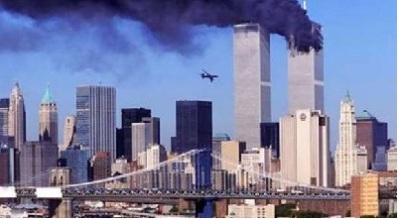Believers Recount Lessons From 9/11
The events of 9/11 actually redefined the decade for the United States and Europe.
The mask of naivete for American citizens cracked on that fateful day, and we discovered that we were unknowingly engaged in a jihad.
In 2001, many ministries and mission groups were already shifting the way things were done to a more efficient model. But when September rolled around, everything moved into high gear.
The biggest difference for the overseas ministry models was that expatriate Christian workers were training the indigenous church to be self-sustaining. For stateside groups, it was streamlining a response through an existing community member—in this case, the local church.
Bas Vanderzalm with Medical Teams International explains: “We immediately linked with churches that were in the area. Those churches opened their doors on the day of the disaster. They provided water and meals; and for months afterward, those churches were centers of hope.”
However, most of the local churches were unprepared for the scope of their response. Instead of re-inventing the wheel, Medical Teams International got behind them and shared their expertise. “The churches did need help,” he says. “They weren’t necessarily experienced in what to do, nor did they have the resources they needed to respond. And that’s where we partnered with them.”
That effort laid the groundwork for more. Since 2001, there have been multiple major crises around the world, including Hurricane Katrina, the Asian Tsunami, Haiti’s earthquake, Japan’s earthquake and tsunami, the Arab Spring, and the East Africa famine.
“Whenever a disaster happens, we receive support from these churches in Manhattan with whom we worked ten years ago because they know the need, and they know what we do,” Vanderzalm says.
More importantly, the lessons of sacrifice made a lasting impression. “After 9/11, the churches were full for a considerable period of time because people were looking for spiritual answers to these questions. Whenever a disaster happens, these are the significant questions that come up. And that provides churches a significant opportunity because people are looking for meaning.”
Even if the urgency of the questions has faded over time, there are still some who sought and found truth in the wake of the events of Sept. 11, 2001. That’s what really counts, says Vanderzalm.
“Our mission is to demonstrate the love of Christ to people affected by disaster, conflict, and poverty around the world. The best way we can do that is by supporting local churches who are on the ground. They know who needs to help. They have been there all along, and they will be there long after we leave.”
There’s one last redefining lesson everyone shared, Vanderzalm notes. “None of us is immune to disaster. We may think we are, but we are not. Secondly, we should focus on the things that are really important in our lives. In those days, we realized that some of the things that we were pursuing in our lives didn’t have much significance.”













